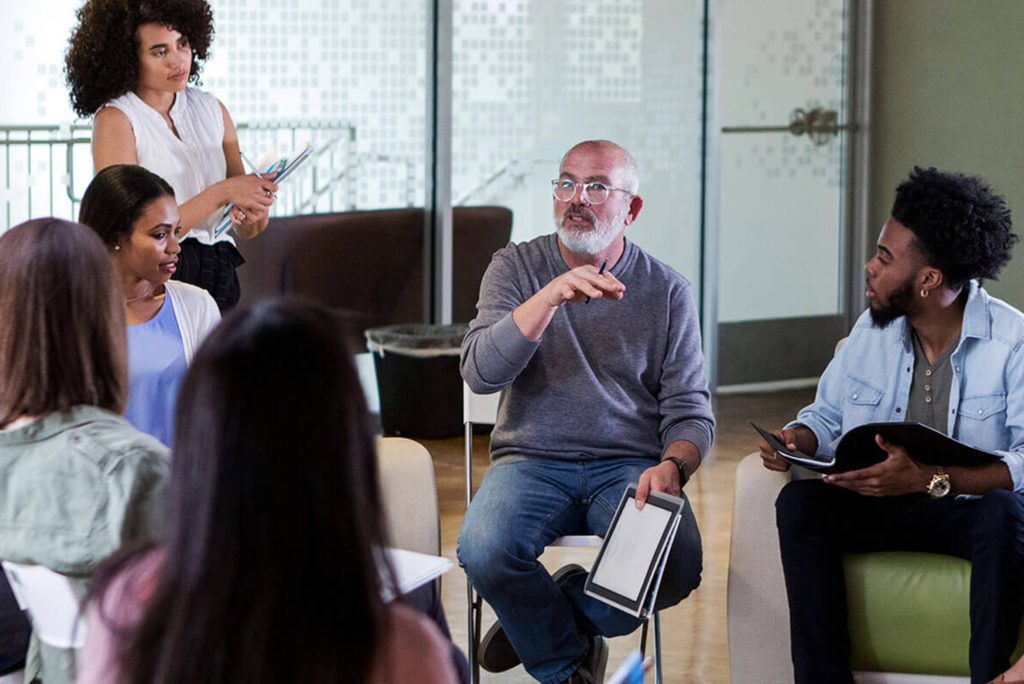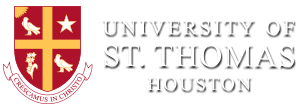Be Bold Blog
The University of St. Thomas (UST) is Houston’s Catholic University, committed to the Catholic intellectual tradition and the dialogue between faith and reason. Our blog is dedicated to helping you explore your future career possibilities and how to make the most of your college experience.
BA vs. BS in Psychology

BA vs. BS in Psychology: Which Is Right for You?
Deciding on a college major can be tricky, especially if introspection isn’t your strong suit. Since you’re considering majoring in psychology, there’s a good chance you’re fascinated by the mind and figuring out what makes people tick. Psychology is a great option if you want an interesting and challenging degree that can set you up for success in many careers. But how do you differentiate a BA vs. BS in psychology and which option aligns best with your interests and goals?
To help you answer these questions and more, keep reading for a detailed breakdown of these popular undergraduate programs. We sought expert advice from University of St. Thomas (UST) psychology professors Dr. JoAnne Meier-Marquis and Dr. Crystal Tran to help understand the difference between a BA and BS in psychology.
What do you learn in a psychology degree?
As a psychology student, whether Bachelor of Arts (BA) or Bachelor of Science (BS), you can expect to explore the foundations of psychology, psychological practices, cognitive processes and human behavior. You’ll learn how to think critically, conduct research, use analytical software and apply your skills in service of the community. In a high-quality psychology program, you should also develop a firm understanding of the scientific method and how it applies to the study of the mind.
Examples of common courses in both psychology programs include:
- General Psychology
- Foundations of Statistical Analysis
- Inferential Statistics
- Experimental Psychology with a lab
- The UST psychology programs also include a unique course called “Psychometrics,” which is essentially applied statistics for psychologists. Dr. Meier-Marquis explains that this advanced class is not typically offered at the undergraduate level, but UST faculty felt it was essential to include in the curriculum.
“Psychology is a science based on empirical data and research,” she explains. “It’s so important for students to understand how we know what we know.”
Deciding between a BA vs. BS in psychology
First-year psychology majors don’t need to worry about committing to a path right away. Students are expected to take a variety of classes to develop a broad overview of the field, in addition to different subfields and specialties. Everyone is required to take courses in statistics and general psychology, which often helps students decipher their interests and abilities.
While neither degree is inherently more difficult than the other, there are some things to keep in mind when deciding which is best for you. Keep reading for a more detailed breakdown on the classes, capstones and careers associated with a BA or BS in psychology.
Psychology BA vs. BS: Courses and capstone projects
All UST psychology majors can choose from a wide variety of courses, regardless of their choice as a BA or BS student. This gives students the chance to tailor their education based on their interests and aspirations for after graduation. Examples of electives include:
- Child Psychology
- Counseling and Psychotherapy
- Sports Psychology
- Biopsychology
- Cognitive Psychology
- Abnormal Psychology
One notable difference between a BA and BS in psychology is the capstone projects. For those not familiar with the term, a capstone project is a multifaceted assignment that serves as a culminating academic and intellectual experience for students.
BA in psychology students complete their capstone projects in two parts:
- Applications and Careers in the Psychological Sciences course
- Internship in Psychology
The “Careers Class,” as it’s known on campus, was added to the curriculum in the last five years and has proven to be extraordinarily valuable in preparing psychology grads for life after college. Students are tasked with exploring the many possible job opportunities in a systematic manner and discussing their options with assistance from their classmates and professor.
They also practice professional skills like creating a grad portfolio, performing mock interviews, asking for letters of recommendation, resume writing and more. This class helps set them up for success in choosing and completing an internship, which is the final part of the capstone.
“Students gain exposure to all of the many job opportunities that are out there and begin preparing for the real world,” Dr. Tran says. “No matter what you decide to do after graduation, you’ll be set up for success.”
Many BA in psychology graduates have stated unequivocally that the Careers Class/internship combination helped them find their vocation. Some BS in psychology students even opt to take the Careers Class simply because it’s so helpful.
In contrast, the capstone for BS in psychology majors is a year-long research project. Students get the chance to develop an original research idea and execute it step-by-step in collaboration with a professor. They apply everything they’ve learned thus far and navigate the complex requirements of scientific research, such as proposals, internal reviews and professional conference presentations.
This high-impact educational practice is an extraordinary opportunity for students to gain research and/or laboratory skills and work one-on-one with faculty. “Getting this kind of experience during undergrad can be a game changer, especially if the student wants to earn a graduate or doctoral degree in the field,” explains Dr. Tran.
Psychology BA vs. BS: Careers
If you’re a people-person who hopes to use their skills to work closely with others and serve communities in need, you might consider a BA degree. This is known as the applied sciences branch of psychology and represents about half of the entire field.
Some typical BA in psychology jobs include:
- Therapist
- Social worker
- Clinician
- Counselor
The other branch of psychology is research, which requires strong skills in analytics and statistics, or “critical thinking with numbers,” as Dr. Tran refers to it. If math and science come easily to you, this could be an excellent fit. This sector is comprised of social scientists who specialize in many subfields including developmental, cognitive, industrial and organizational psychology.
Examples of BS in psychology careers include:
- Academic researcher
- Psychiatric technician
- Laboratory assistant
- Medical doctor
If you’re surprised to see “doctor” on this list, think again. Dr. Tran, who is also an advisor for pre-health students at UST, says that a psychology major is a great option for pre-med students.
“As a healthcare provider, understanding how people think and behave is incredibly useful,” Dr. Tran explains. “More students are realizing you don’t actually have to major in chemistry or biology, as long as hit you hit all of your pre-req classes for medical or professional school.”
For more career inspiration, read “What can I do with a psych degree?”
BA or BS in psychology: The choice is yours
After reading the information above, you should have a better understanding of the difference between a BA and BS in psychology. No matter which route you follow, the hands-on psychology programs at UST can set you up for success in your chosen field. Our small class sizes make it possible for you to get the personal attention you need to thrive academically and professionally.
Want to learn more about this fascinating and versatile degree? Check out UST’s Bachelor of Arts or Bachelor of Science in Psychology.
Ready to take the next step?
Related articles
About UST
The University of St. Thomas (UST) is Houston’s Catholic University, committed to the religious, ethical and intellectual traditions of Catholic higher education. For more than 70 years, we’ve been graduating students like you into successful careers in medicine, education, business, public administration and more – throughout Houston and across the globe.

